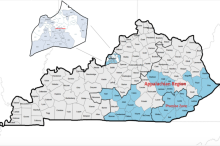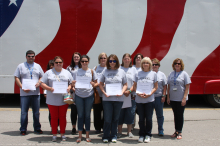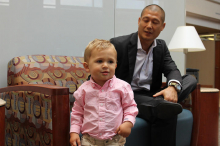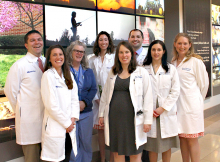Updated Fiscal Policies Released by NIH
NIH Fiscal Policy for Grant Awards - FY 2017
Notice Number: NOT-OD-17-086
Key Dates
Release Date: June 30, 2017
NIH Announces New Stipend Levels for Research Training Grants
[from the NIH website]
Revision: Ruth L. Kirschstein National Research Service Awards (NRSA) Predoctoral Stipends, Training Related Expenses, Institutional Allowance, and Tuition/Fees Effective for Fiscal Year 2017
Notice Number: NOT-OD-17-084
Key Dates
Release Date: June 27, 2017
New F-RPPR Available on eRA Commons
As you may know, NIH has created a new module for the online completion and submission of Final Research Performance Progress Reports (F-RPPRs). While the F-RPPR and Annual RPPRs are similar, one notable difference is that you access the F-RPPR through the “Process Final RPPR” link on the eRA Commons Closeout Status screen. In contrast, Annual RPPRs are accessed via a similar link on the Commons Status screen. This
UK Center for Health Services Research Awarded $4.5 Million from CMS for Accountable Health Communities
With a $4.5 million award from the Centers for Medicare and Medicaid Services, researchers in the University of Kentucky Center for Health Services Research (CHSR) have established the Kentucky Consortium for Accountable Health Communities (KC-AHC) to address the health-related social needs of vulnerable patients across the Commonwealth.
Head of Duke University’s Practice Plans Selected as UK’s Next EVPHA
Perry County Diabetes Coalition Walks 33,000 Miles
MEDIA CONTACT: Beth Bowling, beth.bowling@uky.edu, 606-439-3557
UKnow: Family and Surgeon Work to Raise Awareness of Cleft Care, Repair Children in Third World
By Elizabeth Adams
UKnow
The 20-week ultrasound appointment privileges parents to a sneak-peek of their baby growing inside the womb.
First-time parents Anna (Seitz) and Evan Ciannello went into their 20-week appointment expecting to see their baby’s physical features taking perfect form — 10 tiny fingers, one wrinkled nose, two eyes yet to open and a complete mouth, perhaps sucking a thumb. But the 20-week ultrasound appointment brought unwelcome news to the couple.
The UK CT Surgery Clinic earns Patient Experience Award
The University of Kentucky Cardiothoracic Surgery Clinic earned the Patient Experience Award for the third quarter of 2017. It is the fourth time the clinic has won the award.
The award, which is determined from the results of national patient satisfaction surveys, placed the clinic among the highest rated in the United States, according to the UK Office of Patient Experience.
Change in Health Insurance Rates Used in Grant Budget Development Process
Effective immediately, the College of Medicine SRAS GPSs will be using health insurance rates in grant budgets based on actual enrollment information that is available to them for College of Medicine employees via HR/Payroll in SAP. Previously, the highest rate for full family coverage has been used in most cases, since the budget figure was just expected to be an estimate of expenses.





